‘Cats and dogs were airlifted out of Kabul, not human beings at risk of execution’
Your digest of analysis and commentary from the British and international press

- 1. What a story to tell the world: Britain values dogs more than Afghan people
- 2. Wake up XR, you’re not going to kill capitalism
- 3. Why Boris Johnson’s opponents keep failing
- 4. The Biden doctrine will allow America to focus on bigger goals
- 5. Good for Esther McVey and Philip Davies – some free hospitality is the least our MPs deserve
A free daily email with the biggest news stories of the day – and the best features from TheWeek.com
You are now subscribed
Your newsletter sign-up was successful
1. What a story to tell the world: Britain values dogs more than Afghan people
Gaby Hinsliff in The Guardian
on Farthing’s menagerie
“As the gates of hell closed on Kabul, they were among the last to make it out,” wrote Gaby Hinsliff in The Guardian. “They landed in the early hours of Sunday morning, to a hero’s welcome from some, and shamed silence from others.” But “this was a planeload not of human souls – those desperate Afghans who had huddled knee-deep in sewage for days outside the airport in hopes of being saved – but of cats and dogs”. The Ministry of Defence confirmed “through audibly gritted teeth” that the private plane chartered to bring back animal rescuer Paul “Pen” Farthing and his strays had been “assisted” through the airport by British troops in the final hours of the retreat from Kabul. “What a gift to extremist movements across the Middle East and beyond who draw their power from the idea that the west holds foreign lives contemptuously cheap,” she added. “That cats of no conceivable interest to the Taliban can be airlifted out but not human beings at risk of being hunted down and executed.”
The Week
Escape your echo chamber. Get the facts behind the news, plus analysis from multiple perspectives.

Sign up for The Week's Free Newsletters
From our morning news briefing to a weekly Good News Newsletter, get the best of The Week delivered directly to your inbox.
From our morning news briefing to a weekly Good News Newsletter, get the best of The Week delivered directly to your inbox.
2. Wake up XR, you’re not going to kill capitalism
Hugo Rifkind in The Times
on political idealism
The environmental group Extinction Rebellion “wants to save the world by ending capitalism”, said Hugo Rifkind in The Times. “Capitalism entails acquisition, the thinking goes, and acquisition entails endless growth. So, you abandon both. Hooray! World fixed.” While in campaigning terms “there can be a value in being wilfully unrealistic”, he continued, “idealism doesn’t age well”. “Even Greta Thunberg, one day, will guiltily turn on the heating”; “apocalypticism leads to fatalism, which breeds nihilism”, he said. “Be careful telling people that they are running out of time. What are they supposed to do once they have?”
A free daily email with the biggest news stories of the day – and the best features from TheWeek.com
3. Why Boris Johnson’s opponents keep failing
Patrick O’Flynn in The Spectator
on Britain’s Trump
“Which Boris Johnson should Labour fight?” asked Patrick Flynn in The Spectator. The Johnson who left-wingers think they are fighting is a “cruel and dastardly right-wing serial liar who wins elections by pulling the wool over the eyes of the voters. A British Trump, in other words.” However, “what actually worries many of those who voted Conservative in 2019” is not that he is a “strongman” leader, but “a growing suspicion that Boris Johnson is nowhere near strong enough”. Flynn went on: “The central thrust of Tony Blair’s destruction of the political personality of John Major” was not “that Major was nasty, but that he was useless; a figure who merited mockery and even pity.” That is what Keir Starmer and the left need to do now with Johnson, he concluded, because “they might just find some non-aligned voters ready to believe it”.
4. The Biden doctrine will allow America to focus on bigger goals
Stephen Walt in the Financial Times
on ‘self-interested pleading’
While “a chorus of overwrought pundits, unrepentant hawks and opportunistic adversaries now proclaim that defeat in Afghanistan has left US credibility in tatters”, Joe Biden’s move to “end an unwinnable war says nothing about a great power’s willingness to fight for more vital objectives”, Stephen Walt wrote in the Financial Times. “Allied complaints that they cannot trust the US any more should be seen as self-interested pleading from partners accustomed to letting Uncle Sam bear a disproportionate share of the burden of collective defence,” he added. “If disengagement from Afghanistan encourages some of them to pull their weight, so much the better.”
5. Good for Esther McVey and Philip Davies – some free hospitality is the least our MPs deserve
Rupert Hawksley in The Independent
on parliamentary perks
“How to react to the news that Tory MPs Esther McVey and Philip Davies accepted VIP tickets to a series of flagship sporting events this year?” Rupert Hawksley asked in the Independent. “Might I politely suggest a great big shrug of the shoulders. Honestly, so what?” The popular suggestion “that MPs must lead puritanical lives, never indulging in anything or – heaven forbid – having fun, is vindictive, childish and self-defeating”, he continued. “It’s certainly an enviable summer of sport but, added together, it amounts to what – a few days of entertainment? It’s hardly a dereliction of duty and I doubt their constituents would disagree,” Hawksley argued. “In fact, most people would probably say, good for them. Tough job, enjoy a day out.”
-
 The ‘ravenous’ demand for Cornish minerals
The ‘ravenous’ demand for Cornish mineralsUnder the Radar Growing need for critical minerals to power tech has intensified ‘appetite’ for lithium, which could be a ‘huge boon’ for local economy
-
 Why are election experts taking Trump’s midterm threats seriously?
Why are election experts taking Trump’s midterm threats seriously?IN THE SPOTLIGHT As the president muses about polling place deployments and a centralized electoral system aimed at one-party control, lawmakers are taking this administration at its word
-
 ‘Restaurateurs have become millionaires’
‘Restaurateurs have become millionaires’Instant Opinion Opinion, comment and editorials of the day
-
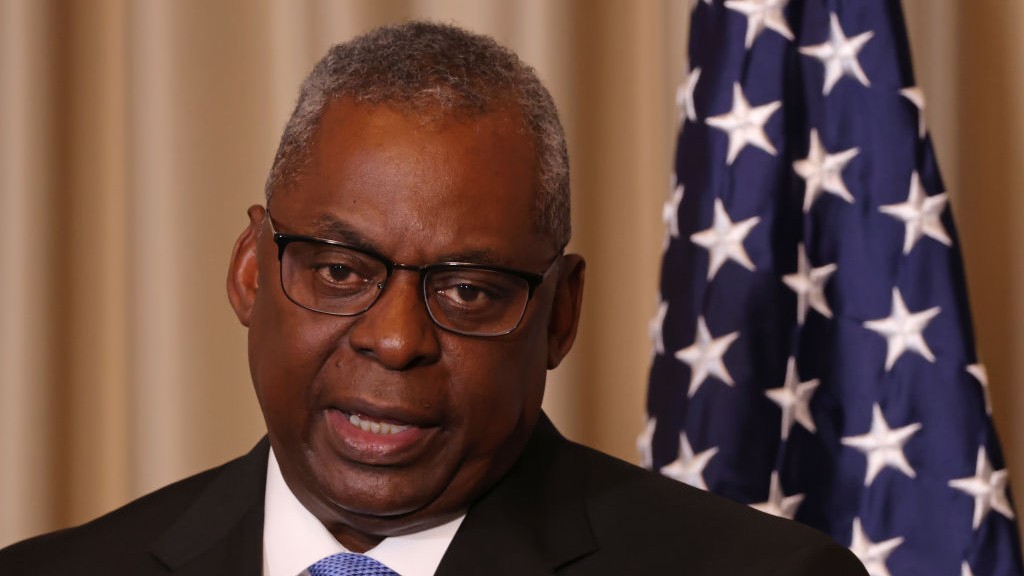 10 things you need to know today: January 7, 2024
10 things you need to know today: January 7, 2024Daily Briefing White House reportedly left unaware of defense secretary’s hospitalization, Biden to deliver State of the Union address on March 7, and more
-
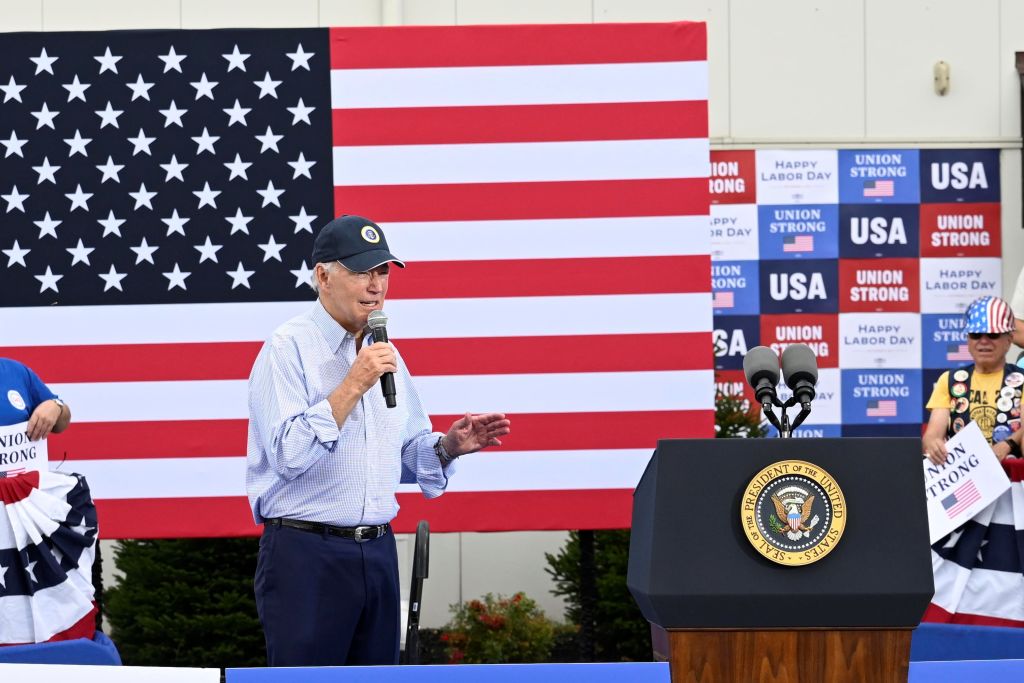 10 things you need to know today: September 5, 2023
10 things you need to know today: September 5, 2023Daily Briefing President Biden courts unions on Labor Day, thousands leave Burning Man after being trapped by desert mud, and more
-
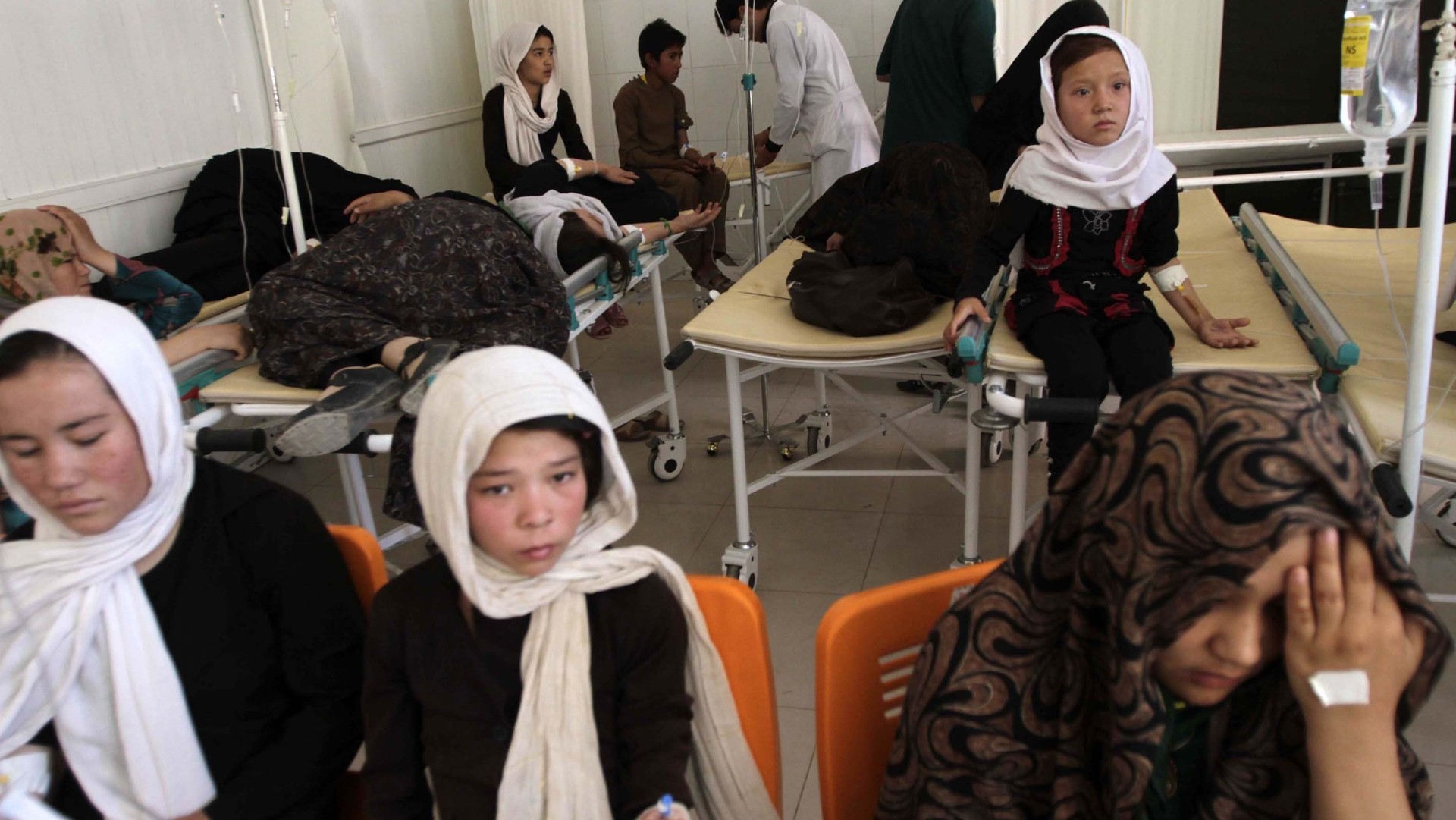 ‘We should be scared’: the poisoning of schoolgirls in Afghanistan
‘We should be scared’: the poisoning of schoolgirls in Afghanistanfeature Children hospitalised in allegedly deliberate mass attacks is latest in series of incidents going back decades
-
 Boris Johnson shocks UK by resigning from Parliament
Boris Johnson shocks UK by resigning from ParliamentSpeed Read
-
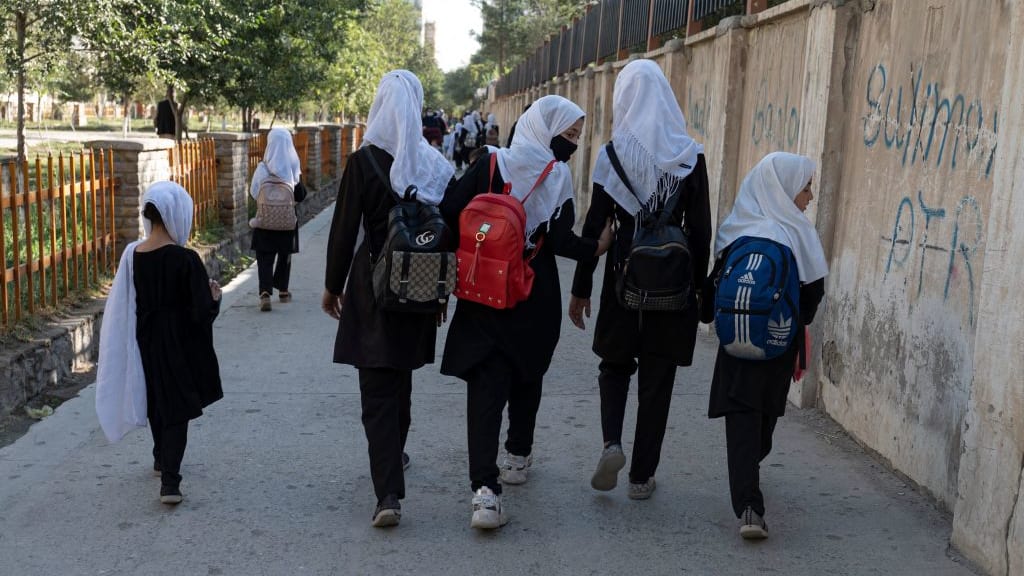 Officials believe dozens of girls in Afghanistan were deliberately poisoned at school
Officials believe dozens of girls in Afghanistan were deliberately poisoned at schoolSpeed Read
-
 Bees delay flight for three hours
Bees delay flight for three hoursfeature And other stories from the stranger side of life
-
 Taliban kills mastermind of Kabul airport suicide bombing
Taliban kills mastermind of Kabul airport suicide bombingSpeed Read
-
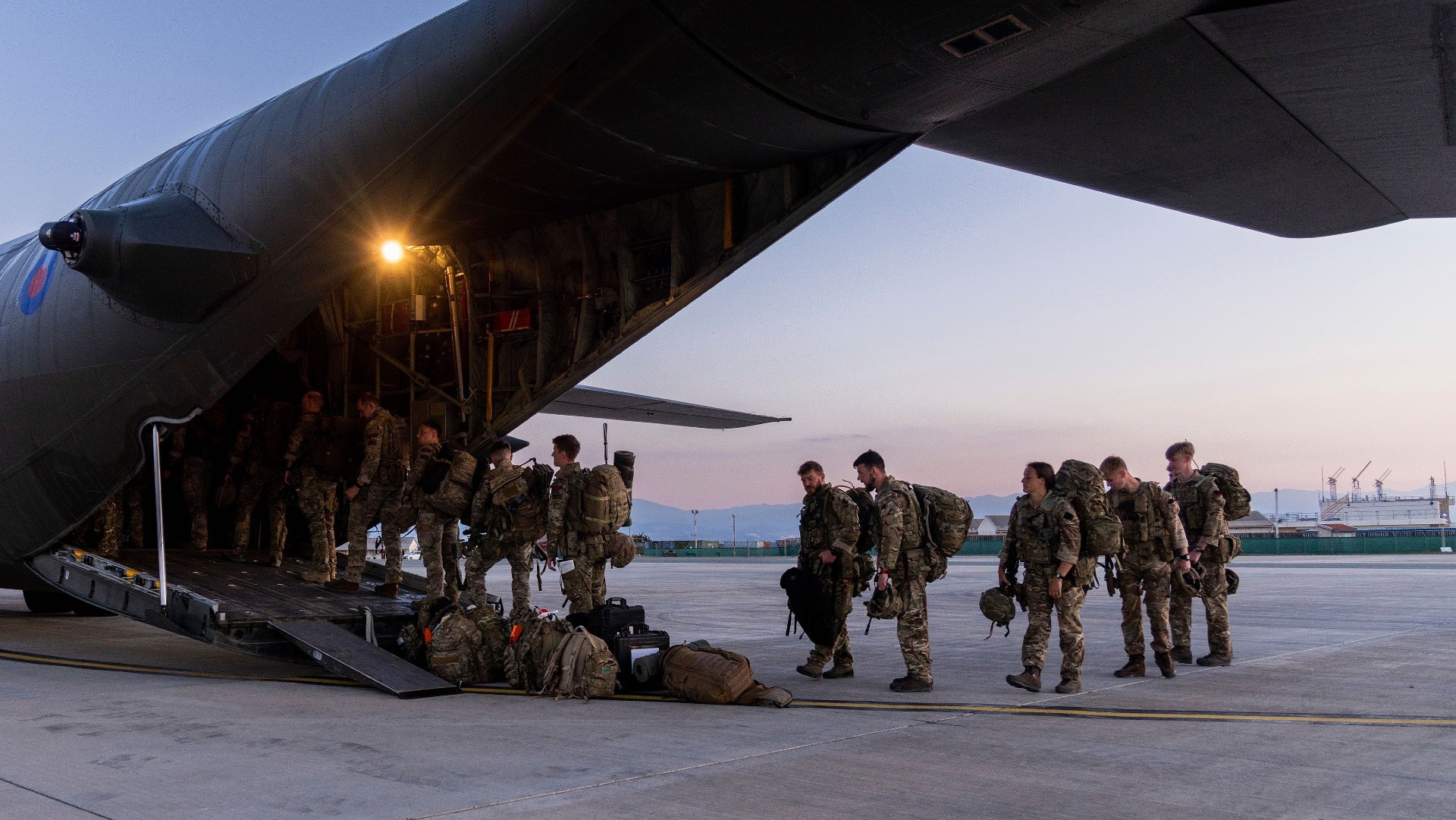 Sudan evacuation: has Foreign Office learnt the lessons from Afghanistan?
Sudan evacuation: has Foreign Office learnt the lessons from Afghanistan?Today's Big Question Failings of chaotic withdrawal from Kabul prompt return of foreign secretary and airlift of Britons from Khartoum